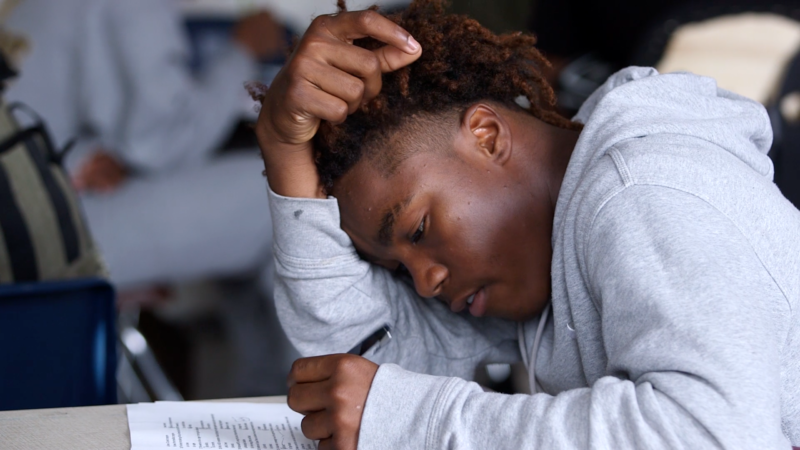Launched by the Oakland Unified School District in 2010, the African American Male Achievement program wrapped up its first semester at Mission High School in San Francisco this month.
According to the OUSD website, the program’s stated goal is to “stop the epidemic failure of African American male students” and is designed to improve their academic and life outcomes. After several academic years in Oakland, the program expanded across the bay to San Francisco for the first time this fall.
Written on a whiteboard in a classroom at Mission High School, the first and only S.F. high school to launch the program, the objective is written simply: “Engage. Encourage. Empower.”
The program’s curriculum places an emphasis on African-American history that empowers young men. Through unconventional methods of teaching like chanting and music, students receive lessons on major civil rights leaders, such as Malcolm X and the Black Panther Party, and not on history lessons that focus on slavery or oppression of blacks.
“[Students can] finally come into a space they own. They can challenge the status quo,” said Jeremy Vasquez, a Mission High School teacher who leads the African American Male Achievement program there. “They’re able to come into [an academic environment] that is known to be institutionally racist and speak on it. ‘Like, we’re doing the slavery [topic] again? Again? I’ve heard this every single year I’ve been in school. Can we change the narrative?’ ”

In addition to teaching African-American males about their cultural identity, the program encourages students to address each other using the term “king.” Vasquez says there has been backlash from certain Mission High School teachers who say the program is divisive, even crossing out the word “king” when students write it before their name on homework and tests.
